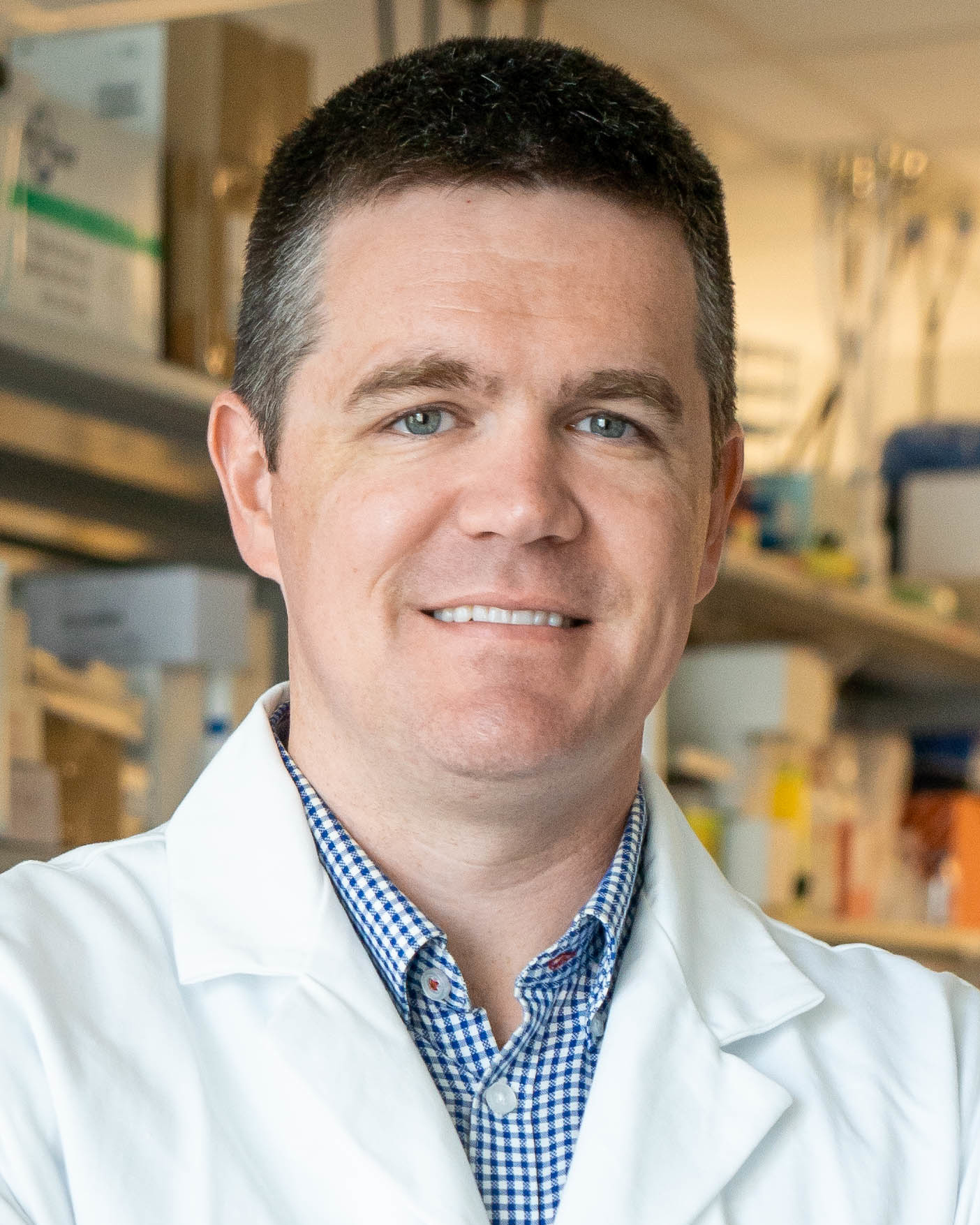Project title: Personalized Immunotherapy for Atypical Pulmonary Carcinoids
Kevin McHugh, PhD William Marsh Rice University

- Status: Active
- Year(s): 2022
- Grant Type: Pilot
- Research Type: Translational
- Primary Tumor Site: Lung
- Area of Inquiry: Experimental & molecular therapeutics: gene & vector-based therapy
Description
Dr. McHugh and his research team are developing a personalized immunotherapeutic platform to treat atypical pulmonary carcinoids.
What critical NET problem/question will researchers try to answer?
The research team will explore whether atypical pulmonary carcinoids can be selectively targeted and killed through the recognition of cancer-specific mutations.
Why is this important?
Patients who have metastatic neuroendocrine tumors currently face an extremely poor prognosis. Surgical resection of part of the lung, or an entire lung, can be effective in some patients while the disease remains localized; however, this procedure inherently decreases lung function and is not effective for tumors that have already spread to other parts of the body.
What will the researchers do?
McHugh and his team will employ genome-editing tools that uniquely recognize cancer cells based on mutations found in each individual patient’s cancer. Based on this highly specific recognition process, cancer cells will be selectively killed, triggering a systemic anti-cancer response.
How might this improve treatment of NETs?
This research aims to develop a personalized therapy that is both highly effective and minimally harmful to normal tissues. Whereas current treatment options and emerging options for other cancers have substantial drawbacks—including severe side effects and cancer recurrence—the personalization offered by this therapy enables it to be both highly targeted and broadly useful to patients who have atypical pulmonary carcinoids and neuroendocrine tumors in general. This therapy also has the potential to be comparatively non-invasive and inexpensive, making it accessible to many patients worldwide.
What is the next step?
As a pilot study, this therapy is still in its early stages of development; however, the next step in this project is to demonstrate efficacy in mouse models and patient-derived primary cancer cells to motivate subsequent clinical trials. The long-term goal of this research is to develop a personalized therapeutic pipeline that can be readily accessed by clinicians.
Additional Details
- City: Houston
- State: TX
- Country: United States
- Grant Duration: 1 year
DISCLAIMER
NETRF funds laboratory research to understand the development of neuroendocrine tumors and translational research to explore new concepts in treatment. Research grant descriptions and research updates from NETRF are not intended to serve as medical advice. It can take years for research discoveries to be fully validated and approved for patient care. Always consult your health care providers about your treatment options.



